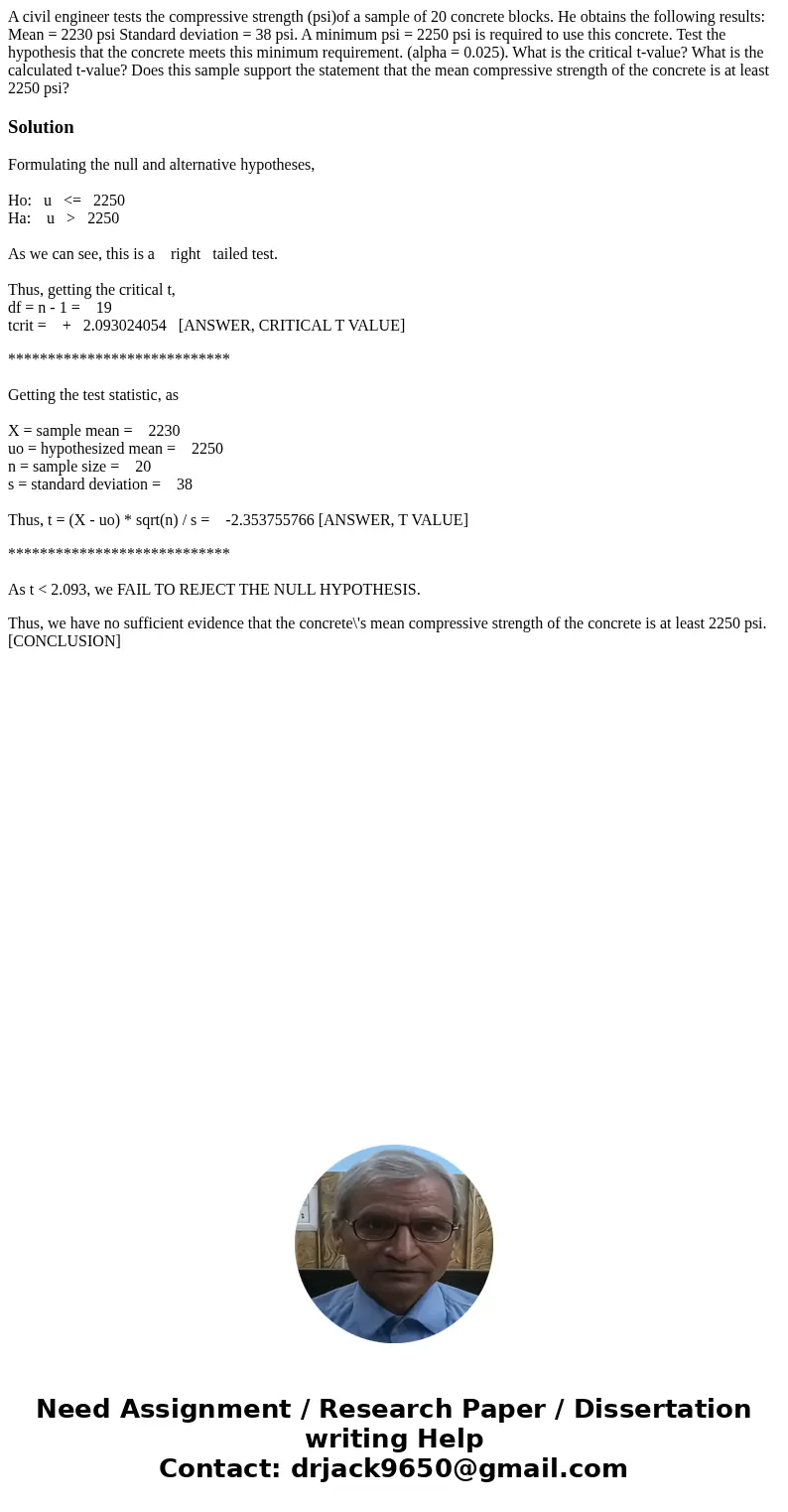A civil engineer tests the compressive strength psiof a samp
A civil engineer tests the compressive strength (psi)of a sample of 20 concrete blocks. He obtains the following results: Mean = 2230 psi Standard deviation = 38 psi. A minimum psi = 2250 psi is required to use this concrete. Test the hypothesis that the concrete meets this minimum requirement. (alpha = 0.025). What is the critical t-value? What is the calculated t-value? Does this sample support the statement that the mean compressive strength of the concrete is at least 2250 psi?
Solution
Formulating the null and alternative hypotheses,
Ho: u <= 2250
Ha: u > 2250
As we can see, this is a right tailed test.
Thus, getting the critical t,
df = n - 1 = 19
tcrit = + 2.093024054 [ANSWER, CRITICAL T VALUE]
****************************
Getting the test statistic, as
X = sample mean = 2230
uo = hypothesized mean = 2250
n = sample size = 20
s = standard deviation = 38
Thus, t = (X - uo) * sqrt(n) / s = -2.353755766 [ANSWER, T VALUE]
****************************
As t < 2.093, we FAIL TO REJECT THE NULL HYPOTHESIS.
Thus, we have no sufficient evidence that the concrete\'s mean compressive strength of the concrete is at least 2250 psi. [CONCLUSION]

 Homework Sourse
Homework Sourse